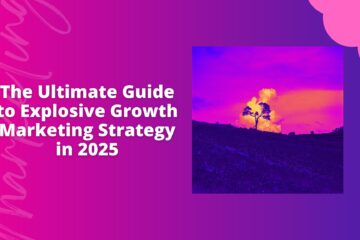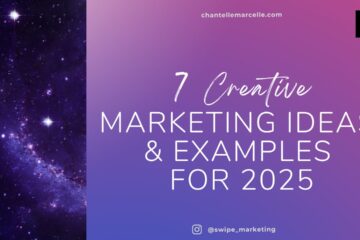
Stop Making Boring B2B Marketing Content

I recently joined fellow marketer Stewart Hillhouse on his podcast, Top of Mind with Stewart Hillhouse, to discuss social media, team building, and boring B2B marketing content.
Here are some paraphrased highlights from our conversation (or scroll to bottom to listen):
Q: There was a post that you had a couple days ago. It may have been more recent than that. And I want to hear where it came from because I think it’s really interesting.
So you said, “It’s perfectly fine to be a redditor with a website. It’s not okay to be a website with a Reddit account.”
And so for those who don’t know, it’s a good platform for chatting with people because it’s anonymous. You can have your account do whatever you want. It’s not attached to a person necessarily.
But I think there’s a lot more to this in the nuances of the platform that I’d love to chat with you about.
So what did this mean to you, and where do they come from?
A: Reddit is a channel I think that gets overlooked a lot, especially by B2B brands. So I was doing some research into that, and I saw that that was one of the lines for their community guidelines. And I thought that makes a ton of sense.
You don’t want to come into a community and be disruptive with a stream of self-promotion and sounding like you’re constantly trying to push something. Or worse, that you have a hidden agenda.
You want to make your presence seem natural, like you’re looking for authentic engagement. If you’re not providing any value to people with whatever digital channel, you’ve missed the mark. And that’s especially true when it comes to using social media.
Many business people just don’t understand that you can’t jump onto a communication channel and be disruptive and self-promotional. People really want that to feel like they’re connected to you and that you are looking to bring value to them. You have to offer something that’s going to benefit your audience.
Q: From an acquisition standpoint, so how effective is that? Or how do you measure it? And I was wondering if you have any tips on metrics tracking. Because it’s tricky for a lot of people to wrap their heads around spending time or hiring a full-time person to run social media because it seems like a a black box that you don’t really know how to measure.
Today it’s a mandatory thing for companies and brands, but how much time do you put in? And how do you judge whether you’re getting an appropriate level of ROI?
A: I think it is tough, similar to any marketing activities around increasing brand awareness. It’s hard to measure.
But you can tell when you aren’t doing enough in that space, so I would say that there really isn’t a perfect way to to measure.
With social media, I do like to set up tracking links occasionally and see where my traffic is coming from. It helps gauge whether people are actually engaging with my content.
It does also help when you’re having conversations and people bring up, “Oh, I saw such and such that you shared on LinkedIn the other day!” I think that’s an indicator of success.
For me, my overall social media strategy is to join in conversations rather than just dropping a link and plugging my brand.
Q: What’s your perspective on employee’s content that promotes a company versus their own personal brand?
A: I’ve seen a huge increase with brands encouraging their employees to get more active.
People like to talk to people. They don’t want to just talk to brands.
But you have to also make it as easy as possible for employees to take that step and become brand evangelists on social media. Then after they start to see the benefits, especially toward their efforts at building their own brand, they become a lot more willing to do that on their own.
I see certain brands right now who are doing it really well. I think of Drift, Privy, Gravy. These are all startups that are really doing things well on social media. And they guide and shape the overall conversations because so many of their employees are speaking up. They amplify the brand voice, which causes a ripple effect in that you see other people from other companies starting to mention them more often or repeat the same messaging.
Q: All three of those companies you just mentioned are B2B. And you posted about this, B2B companies have been hesitant to to dive in with social media. But those three companies you just mentioned absolutely have a tone and absolutely let the conversation become more friendly than the typical kind of corporate jargon.
A: B2B companies don’t often do a lot of the fun marketing that you see in the B2C space. It sometimes seems they’re afraid or unsure of how to take risks or be silly or tell jokes. The focus is often on just “sounding smart” and adopting an almost academic tone that’s very serious.
But at the end of the day, B2B buyers are still just people. They still want to feel that emotional experience when they’re buying or engaging with B2B marketing content. You just have to be a little more creative about the way that you approach marketing because B2B marketing budget is allocated a little bit differently than within B2C spaces.
And ultimately you have to have fun with what you’re doing in marketing. Because if you’re bored, then for sure the people that you’re trying to sell to are bored.
Q: What are some fun B2C trends that you’ve seen that you really would like to try?
A: I think a lot of it is the difference in mindset. Many B2C companies adopt a light-hearted approach. Their tone is conversational, and they aren’t afraid to test that out using multiple channels or tactics, whereas B2B marketing content feels constrained to certain boxes. B2C brands can have a presence on any apps, TikTok, Snapchat, Twitter, etc.
A great example, the food & beverage space is exceptionally active on Twitter, like Burger King and McDonald’s and Pizza Hut and Wendy’s. I love the way they go back and forth having conversation between all the different brand accounts and how witty the banter is. They use popular lingo and hashtags, so they’re actually engaged with the digital culture rather than pretending it doesn’t exist.
A B2B brand performing well in this regard is Salesforce. They have such a strong presence online and such a strong, cohesive community. People are always talking about them, and they’ve cultivated strong brand loyalty among many.
To hear the full discussion, you can click here. You can also listen on Spotify.
I’d love to know what you think about this topic! Let me know by connecting with me on LinkedIn or you can also tweet me!
You can also sign up for my newsletter and get my content (plus other insight) delivered to you weekly.


